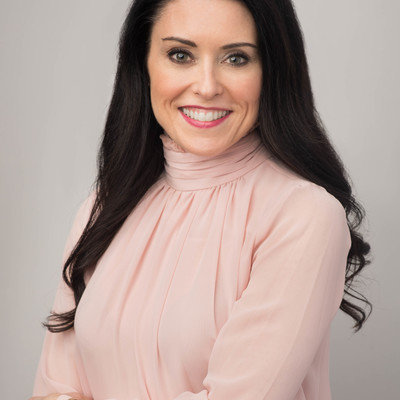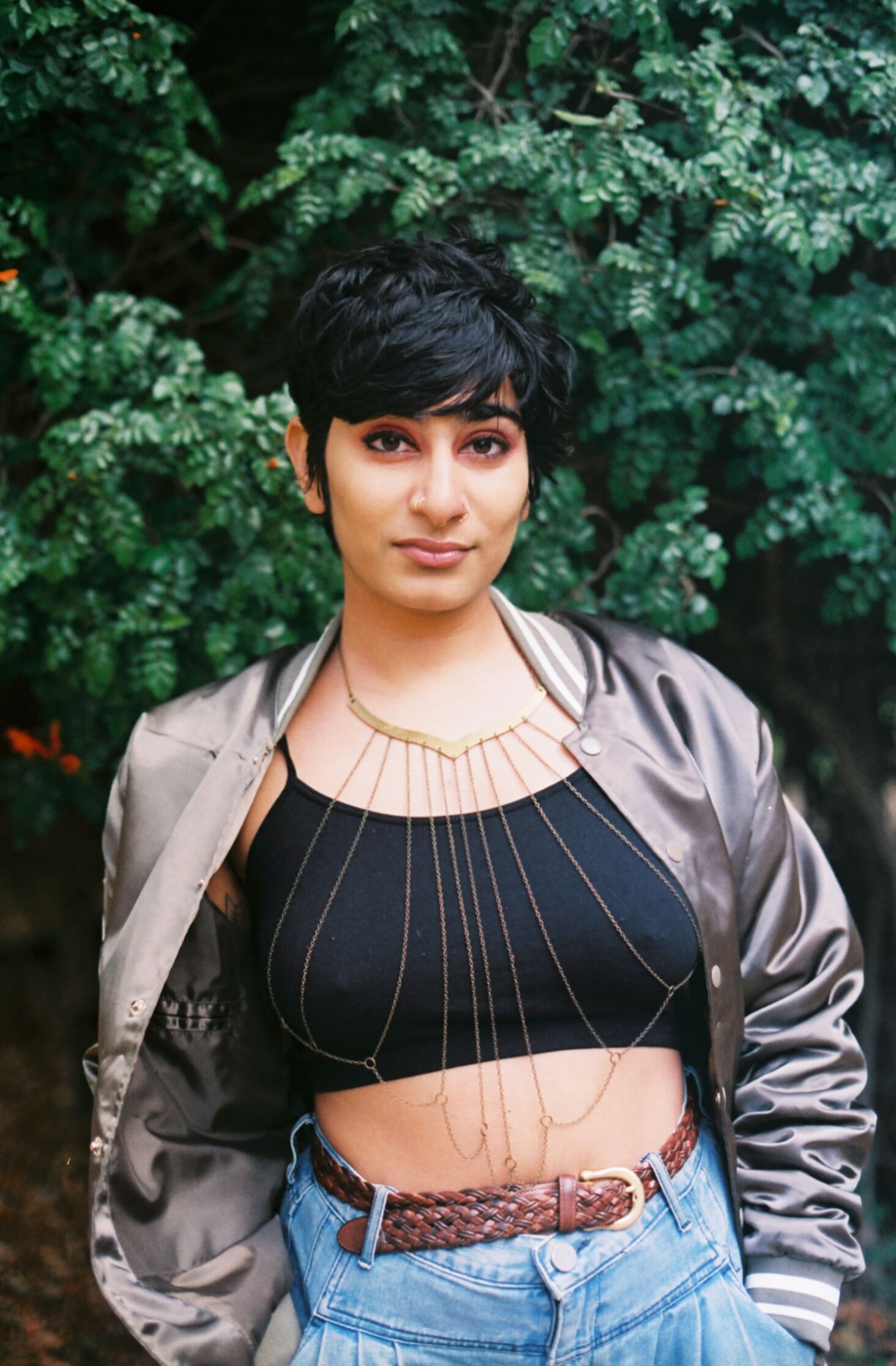There are so many moments of doubt and fear and rejection. But that’s okay. Patience and rigor are key.
As part of my series about “How to write a book that sparks a movement” I had the great pleasure of interviewing Fatimah Asghar.
Fatimah Asgharis a nationally touring poet, screenwriter, educator and performer. Her work has appeared in many journals, including POETRY Magazine, Gulf Coast, BuzzFeed Reader, The Margins, The Offing, Academy of American Poets and many others. Her work has been featured on new outlets like PBS, NPR, Time, Teen Vogue, Huffington Post, and others. In 2011 she created a spoken word poetry group in Bosnia and Herzegovina called REFLEKS while on a Fulbright studying theater in post-genocidal countries. She is a member of the Dark Noise Collective, a 2017 Ruth Lilly and Dorothy Sargent Rosenberg Fellowship recipient, and a Kundiman Fellow. Her chapbook After came out on Yes Yes Books fall 2015. She is the writer and co-creator of Brown Girls, an Emmy-nominated web series that highlights friendships between women of color. Her debut book of poems, If They Come For Us, was released through One World/ Random House, Summer 2018.
Thank you so much for joining us! Can you share the “backstory” about how you grew up?
I am an orphan, my parents died when I was really young. I grew up on the East Coast with not a lot of really strong adult figures in my life, though I am very grateful for the ones who looked out for me and my sisters from afar.
When you were younger, was there a book that you read that inspired you to take action or changed your life?
I remember not really understanding that there were living writers, I kind of thought that all writers were old and dead. Which is so odd because I read Harry Potter as it was being released, and those books meant so much to me in terms of what it meant to escape into literature, how to build a world of words outside of anything that you knew existed. And then, I remember being in high school and reading Everything is Illuminated by Jonathan Safran Foer, and just being so mesmerized by that book: how I was crying on one page and then laughing on the next. I loved the way that book grappled with history and the present moment, and looked at the legacy of family across generations, border, trauma and silence.
What was the moment or series of events that made you decide to bring your message to the greater world?
I write because I have to, because there’s no real other option for me. I remember hearing about my family’s history with the 1947 Partition of India, when colonial Britain left South Asia. It was such a violent event that goes un-talked about — 14 million people were made into refugees in the span of a few months, there were retributive genocides on all sides of religion and division along the borders that were carved out because of Partition, and an estimated 1–2 million people died as a result of Partition. How is this not talked about more? It’s such a terribly violent legacy that still echoes today. So, I found it cropping up in my work a lot and just really wrote into it.
What impact did you hope to make when you wrote this book?
I wanted to situate my people, my diaspora, in a historical context that is often divorced from us. I wanted to examine my experiences growing up in a racist and Islamophobic society, and to give space to explore the particular loneliness of diaspora. I hoped that the book would make people like me feel less lonely in the world, like there was someone else who shared their feelings.
Did the actual results align with your expectations?
I think so. I’m very moved when people come up to me and tell me that they feel seen in my work, or else tell me that they had never heard of Partition, or that Partition is important to them and what it means to see someone talk about it so openly.
What moment let you know that your book had started a movement?
That’s an enormous claim and question I’m not sure I’m entirely comfortable with. I don’t know that my book has sparked a movement, that seems like such a claim based in ego that I can’t quite recon with. I see my books impact in all the small ways — of people at shows talking about how they never knew what Partition was, how they’ve been reading about it, how they’ve been looking into their own family histories more.
What kinds of things did you hear right away from readers? What are the most frequent things you hear from readers about your book now? Are they the same? Different?
I’ve heard from a lot of queer people of color and women of color that they feel really seen by the book, that they feel moved by the articulation of solidarity in the book. Those have been the most consistent things that I’ve heard, and then there are always surprises — when people focus on a specific image, or they feel pulled by a quiet poem or section in the book. I’m always surprised by what people gravitate to, or feel moved by.
What is the most moving or fulfilling experience you’ve had as a result of writing this book?
It’s always so beautiful to me when I go to small colleges or places to read — — like in Kansas or Eugene, Oregon. Because of the history of those places, I kind of always expect my shows to be empty or for folks not to really get the work. But, it’s so beautiful to me because they’re often really packed, and full of amazing women of color and queer people of color who traveled out to come see me read. There’s really no way to encapsulate how that feels, to have an audience that’s reflective of who you are, who you’ve centered in your work, and to see them roll out for you.
Have you experienced anything negative? Do you feel there are drawbacks to writing a book that starts such colossal conversation and change?
There’s always going to be negative stuff, but I don’t think it’s worth talking about or giving energy to. There’s always people who don’t vibe with your politics or identity, particularly if you come from marginalized identities and we live in a racist, homophobic, sexist and Islamophobic society. But I try and take faith in the people who do get it, who feel seen and heard.
Can you articulate why you think books in particular have the power to create movements, revolutions, and true change?
Books are such amazing windows, such amazing places where we can build entire worlds we didn’t think possible. They can get at feelings that we try to ignore, they can cut straight into the heart of something. And that’s so incredibly important.
What is the one habit you believe contributed the most to you becoming a bestselling writer?
Community. I am nothing without my community, without the people who’ve supported me, who’ve pushed me to be a better writer, a better artist, a better thinker, a better person and better friend. I really think of my art as being very linked to the communities I come from, which is why I’m such a strong believer in collectives and artistic community.
What challenge or failure did you learn the most from in your writing career?
I think that rejection is such an important part of career, and knowing that it’s about how you pull yourself up and keep going. You don’t need to do what everyone else is doing, or go for a traditional career path or try and use institutions to legitimize you. There are so many paths to being a writer, and every journey is its own. And nothing is linear — you’ll fail, you’ll succeed, you’ll continue on. That’s a real part of life.
Many aspiring authors would love to make an impact similar to what you have done. What do writers need to know if they want to spark a movement with a book?
The biggest thing is to actually protect your time and space to hone in on your own voice. There’s so much pressure to publish young, to be a ‘prodigy’ or ‘prolific’ and I don’t really think that matters. So many people end up mimicking other people or trying to sound like what they see as a ‘successful’ voice — it’s really clear to see through that. And it takes a long time to really hone in on your own voice and aesthetic, and there’s nothing wrong with that. So if you can do whatever you can to give yourself that time, that’s going to be really important.
Terrance Hayes has a line from one of his poems which is “never mistake what it is for what it looks like.” I think I see a lot of aspiring writers doing that — getting caught up with what they think a literary life looks like, rather than focusing on what it is. What it is, is showing up and doing work. Sitting at your desk or computer or notebook and wondering if you’re a fraud. What it is not is instant book deals, instant applause, etc. There are so many moments of doubt and fear and rejection. But that’s okay. Patience and rigor are key.
The world, of course, needs progress in many areas. What movement do you hope someone (or you!) starts next?
There are so many existing movements occurring that I hope gain more traction and attention, and that I hope enact real change. Prison reform is one. Activists working against police brutality is another. Activists who are trying to protect the lives and rights of trans people, particularly Black and brown trans people. There are so many inequalities that our society has been based on, that really need to change. And I’m really inspired by the people who are leading those charges and making headway.
How can our readers follow you on social media?
You can find me at @asgharthegrouch !
Thank you so much for these insights. It was a true pleasure to do this with you.


